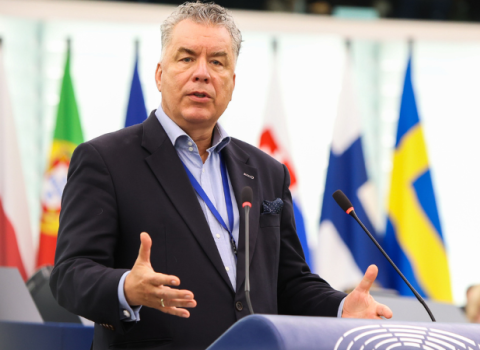“With sovereign debt approaching 100% of GDP, Spain has less fiscal and economic flexibility than in 2008”, says Pedro Aznar, whilst Pedro Rey emphasises the “importance of good expectation management and trustworthiness to ensure that the public behaves in a way that helps mitigate the impact of this crisis”
The global health emergency caused by the coronavirus (COVID-19) pandemic together with the state of alarm declared in Spain will have enormous consequences for this country’s economy. Although it is difficult to forecast future growth in times of uncertainty about how events will unfold as regards the pandemic, Spain is virtually guaranteed to slip into recession in the second half of this year according to professors from the Esade department of economics, finance and accounting, Pedro Aznar and Pedro Rey, taking part in an online session held by Esade. Aznar and Rey discussed the economic dimensions of this crisis in the context of Spain and the financial markets; the possible response of central banks, governments and public authorities; and how the public should behave so as not to exacerbate this issue.
Economic fallout of COVID-19
One of the most decisive factors regarding the resilience of the Spanish economy vis-à-vis the COVID-19 crisis is its dependence on tourism, one of the most important industries in terms of GDP and one that will suffer most due to the impact on aggregate demand and employment. “At the end of 2019, the tourism industry accounted for 2.3 million persons registered with the social security system out of a total of 19 million in Spain”, pointed out Pedro Aznar, the director of the bachelor’s degree in global governance, economics and public order at Esade. Another key factor in the Spanish economy is “the predominance of SMEs, the weakest link in these circumstances”, said this expert, before adding that aggregate supply would also be affected by this crisis as supply chains begin to be hit.
“In comparison with the financial crash of 2008, Spain now has less monetary and fiscal flexibility: its sovereign debt is now approaching 100% of national GDP as opposed to 40% in 2008”, Aznar warned. “A liquidity crisis is around the corner and it is not difficult to imagine that it will soon become a solvency crisis with lots of companies entering the red. Similarly, plummeting production will also mean that fewer workers are needed”, he pointed out. “In order to safeguard jobs and help companies, the government has taken steps to make tax policies more flexible, such as deferred payment of taxes, support for needy families and persons affected by temporary redundancy schemes, etc, although these will have a negative impact on tax revenue – a source of funding for these very policies”, he mentioned.
This expert then commented on the importance of quantitative easing by central banks, and the finance industry then channelling it into the economy as a whole to enable it to redress payment imbalances. Aznar then explained that, “In order to respond to the economic challenges of this global health crisis, it is necessary to find a global, multilateral solution based on international cooperation. The EU has already taken one step in this direction by relaxing deficit targets but they could take more action and advance towards closer coordination as regards taxation and economic policies.”
Behavioural economics in response to the crisis
The expert in behavioural economics, Pedro Rey, shared his views on how the behaviour of individuals and the public in general can help mitigate the economic fallout of this health emergency. In his opinion, “unbiased news, expectation management and confidence building are all crucial”, but that they have been slower than necessary. “We have gone from downplaying this crisis and saying it was not much worse than ordinary flu, to watching the government spend up to 15% of GDP to cushion this crisis. All land borders have been closed and we are all confined to our homes”. And yet, “it is important for spokespersons, regardless of whether they are the prime minister or health experts, to be seen as being unbiased and trustworthy and able to spur people into taking coordinated action”, he added. He did, however, also point out that spokespersons are not the only people responsible for passing on information, “it is the responsibility of all individuals”.
“Many of the things that the government is asking us to do will probably not make much difference in the short term. The curve of contagion will not level out immediately. Hence the importance of good expectation management to ensure that the public remains calm”, explained Pedro Rey. This expert said that this also explains why consumers respond, for example, by panic buying food and essentials. “Faced with the uncertainty caused by the health crisis, we need to do something that makes us feel better and in charge of the situation”. Nevertheless, he pointed out that in this respect “we are facing a cyclical change in consumer behaviour – it has been more impulsive up to now – that may take a long time to recover once this health crisis is over.”
This article was first published on 31 March by Esade.





 A unique international forum for public research organisations and companies to connect their external engagement with strategic interests around their R&D system.
A unique international forum for public research organisations and companies to connect their external engagement with strategic interests around their R&D system.